Amsterdam is known for its rich history, picturesque canals, world-class museums, and liberal culture. WHAT.EDU.VN explores the many facets of this vibrant city. From its artistic heritage to its modern attractions, discover the allure of Amsterdam, the popular travel destination. Learn about Amsterdam’s unique character, iconic landmarks, and cultural impact.
1. The Enchanting Canals of Amsterdam
Amsterdam’s canal system, the Grachtengordel, is perhaps one of the city’s most iconic features. Originally designed for water management and transportation, these canals now serve as a picturesque backdrop to daily life in Amsterdam. The Canal Ring is a UNESCO World Heritage site.
1.1. A Brief History of the Canals
During the Dutch Golden Age in the 17th century, Amsterdam experienced a period of rapid expansion and prosperity. The canals were crucial in managing water levels and facilitating trade.
1.2. Key Canals to Explore
- Prinsengracht (Prince’s Canal): One of the three main canals, known for the Anne Frank House.
- Keizersgracht (Emperor’s Canal): The widest of the three main canals, featuring grand mansions.
- Herengracht (Gentlemen’s Canal): Lined with opulent homes and historical buildings.
- Singel: A canal that once acted as a moat around the city, now famous for the Bloemenmarkt (floating flower market).
1.3. Experiencing the Canals
There are numerous ways to experience Amsterdam’s canals.
- Canal Cruises: Numerous companies offer guided boat tours, providing insights into the city’s history and architecture.
- Walking Tours: Stroll along the canal banks and admire the charming houseboats and historic buildings.
- Cycling: Rent a bike and explore the city at your own pace, using the canals as your guide.
- Houseboat Stays: For a unique experience, consider staying in a houseboat.
2. Amsterdam’s Thriving Museum Scene
Amsterdam is a cultural hub with a wide array of museums catering to diverse interests. The Museumplein is a central location for some of the most popular museums.
2.1. The Van Gogh Museum
Dedicated to the life and works of Vincent van Gogh, this museum houses the largest collection of his paintings and drawings. It offers a deep dive into his artistic evolution and personal struggles.
2.2. The Rijksmuseum
The Rijksmuseum is dedicated to Dutch art and history. It showcases masterpieces from the Dutch Golden Age, including works by Rembrandt, Vermeer, and Frans Hals.
2.3. The Stedelijk Museum
Focusing on modern and contemporary art and design, the Stedelijk Museum features works by artists such as Piet Mondrian, Andy Warhol, and Jackson Pollock.
2.4. Anne Frank House
A poignant and historical site, the Anne Frank House offers a glimpse into the life of Anne Frank and her family during World War II. It serves as a powerful reminder of the atrocities of the Nazi regime.
2.5. Other Notable Museums
- Hermitage Amsterdam: A branch of the famous Hermitage Museum in St. Petersburg, Russia, featuring rotating exhibitions.
- Science Center NEMO: An interactive science museum perfect for families and curious minds.
- The Rembrandt House Museum: The former home and studio of Rembrandt van Rijn, showcasing his life and works.
- The Heineken Experience: An interactive tour of the Heineken brewery, offering insights into the history and production of this famous beer.
3. Amsterdam’s Liberal and Progressive Culture
Amsterdam is renowned for its liberal and progressive values, particularly regarding social issues.
3.1. LGBTQ+ Rights
The Netherlands was the first country in the world to legalize same-sex marriage in 2001. Amsterdam is a safe and accepting destination for LGBTQ+ travelers. Pride Amsterdam, an annual event, celebrates LGBTQ+ culture with the Canal Parade as its highlight.
3.2. Freedom of Expression
Amsterdam values freedom of expression, allowing for open discussions on various topics. This openness contributes to the city’s tolerant and inclusive atmosphere.
3.3. Tolerance and Acceptance
The city is known for its tolerance towards different cultures, religions, and lifestyles. Amsterdam embraces diversity and encourages respect for individual differences.
3.4. Social Liberalism
Amsterdam’s progressive policies extend to various social issues, including drug policy and prostitution. The city’s approach is often pragmatic, focusing on harm reduction and regulation.
3.5. A Welcoming City
Amsterdam’s liberal culture makes it a welcoming destination for visitors from all over the world. The city’s open-mindedness and acceptance contribute to its unique charm and appeal.
4. Amsterdam’s Historic Districts
Amsterdam is home to several historic districts, each with its unique character and charm.
4.1. Jordaan
Originally a working-class neighborhood, Jordaan is now a trendy district with art galleries, boutiques, and cafes. Its narrow streets and canals offer a glimpse into Amsterdam’s past.
4.2. De Pijp
Known as Amsterdam’s Latin Quarter, De Pijp is a vibrant neighborhood with a multicultural atmosphere. The Albert Cuyp Market, one of the largest street markets in the Netherlands, is located here.
4.3. The Nine Streets (De Negen Straatjes)
This charming district, spanning three main canals, features a mix of unique shops, cafes, and restaurants. Many of the buildings date back to the 17th century.
4.4. The Red Light District (De Wallen)
One of Amsterdam’s most famous and controversial areas, the Red Light District is known for its legal prostitution and coffee shops. The Oude Kerk, Amsterdam’s oldest church, is located here.
4.5. Amsterdam-Centrum
The heart of Amsterdam, Amsterdam-Centrum, is home to Dam Square, the Royal Palace, and many other historical landmarks. It is a bustling area with shops, restaurants, and cultural attractions.
5. Amsterdam’s Famous Landmarks
Amsterdam is home to numerous landmarks that reflect its rich history and culture.
5.1. Dam Square
The central square of Amsterdam, Dam Square, is a historical site surrounded by notable buildings, including the Royal Palace and the Nieuwe Kerk.
5.2. The Royal Palace of Amsterdam
Originally built as the city hall during the Dutch Golden Age, the Royal Palace is now one of three royal residences in the Netherlands.
5.3. The Oude Kerk (Old Church)
Amsterdam’s oldest building, the Oude Kerk, dates back to the 13th century. It is located in the heart of the Red Light District.
5.4. The Westerkerk (Western Church)
One of Amsterdam’s most important churches, the Westerkerk, is known for its tall tower, which offers panoramic views of the city.
5.5. The Magere Brug (Skinny Bridge)
A charming drawbridge over the Amstel River, the Magere Brug is a popular spot for photos and romantic strolls.
6. Amsterdam’s Coffee Culture
Amsterdam is known for its vibrant coffee culture, with numerous cafes offering a cozy atmosphere and high-quality coffee.
6.1. Traditional Brown Cafes
These traditional Dutch pubs, known as “brown cafes” due to their dark wood interiors and smoky atmosphere, offer a wide selection of beers and a cozy, traditional experience.
6.2. Specialty Coffee Shops
Amsterdam is home to numerous specialty coffee shops that focus on high-quality beans and brewing methods. These cafes offer a more modern and sophisticated coffee experience.
6.3. Coffee Shops (Cannabis)
It is important to note that in Amsterdam, “coffee shops” refer to establishments where the sale of cannabis is tolerated under certain regulations. These are distinct from cafes that serve coffee and pastries.
6.4. Popular Coffee Spots
- Café ‘t Spui-tje: Located near the Nine Streets, this cafe is known for its excellent coffee and cozy atmosphere.
- Winkel 43: Famous for its apple pie, this cafe is located near the Noordermarkt.
- Lot Sixty One Coffee Roasters: A specialty coffee shop known for its high-quality beans and expert brewing methods.
6.5. Coffee Culture and Social Life
Coffee plays a significant role in Amsterdam’s social life, with cafes serving as gathering places for friends, colleagues, and tourists. The city’s coffee culture reflects its relaxed and social atmosphere.
7. Amsterdam’s Cycling Culture
Amsterdam is famous for its cycling culture, with bicycles being a primary mode of transportation for locals.
7.1. Bicycle Infrastructure
The city boasts an extensive network of bike lanes, making it easy and safe to navigate by bicycle.
7.2. Bicycle Rentals
Numerous rental shops throughout the city offer a variety of bicycles for tourists to rent.
7.3. Cycling Tours
Guided cycling tours provide a great way to explore the city’s highlights while experiencing its cycling culture.
7.4. Cycling Etiquette
It is important to be aware of cycling etiquette in Amsterdam, such as using hand signals and yielding to pedestrians.
7.5. The Cycling Lifestyle
Cycling is an integral part of daily life in Amsterdam, with people of all ages using bicycles to commute, run errands, and socialize.
8. Amsterdam’s Flower Markets
The Netherlands is renowned for its flowers, and Amsterdam’s flower markets are a must-see attraction.
8.1. Bloemenmarkt (Floating Flower Market)
Located on the Singel canal, the Bloemenmarkt is a unique floating flower market where the stalls are set on barges.
8.2. Tulip Mania
Tulips are a star attraction at the Bloemenmarkt, reflecting the Netherlands’ history with tulip cultivation.
8.3. Other Flowers and Plants
In addition to tulips, the Bloemenmarkt offers a wide variety of other flowers, plants, and bulbs.
8.4. Souvenirs and Gifts
The Bloemenmarkt is a great place to purchase souvenirs and gifts, such as tulip bulbs, seeds, and floral-themed items.
8.5. The History of Flower Markets
Amsterdam’s flower markets have a long history, dating back to the 19th century. They reflect the Netherlands’ role as a major center for flower cultivation and trade.
9. Amsterdam’s Parks and Green Spaces
Amsterdam offers numerous parks and green spaces, providing residents and visitors with opportunities for recreation and relaxation.
9.1. Vondelpark
The largest park in Amsterdam, Vondelpark, offers a variety of attractions, including walking paths, ponds, gardens, and an open-air theater.
9.2. Westerpark
A popular park in the Westerpark neighborhood, Westerpark, features green spaces, cultural venues, and restaurants.
9.3. Rembrandtpark
Located in the west of Amsterdam, Rembrandtpark offers a more local and relaxed atmosphere.
9.4. Oosterpark
One of Amsterdam’s oldest parks, Oosterpark, features historical monuments, walking paths, and green spaces.
9.5. The Importance of Green Spaces
Amsterdam’s parks and green spaces contribute to the city’s quality of life, providing residents with opportunities for recreation, relaxation, and social interaction.
10. Amsterdam’s Culinary Scene
Amsterdam’s culinary scene is diverse and innovative, offering a wide range of dining experiences.
10.1. Traditional Dutch Cuisine
Traditional Dutch dishes, such as herring, stamppot (mashed potatoes with vegetables), and bitterballen (deep-fried meatballs), are worth trying.
10.2. Indonesian Influence
Due to the Netherlands’ colonial history with Indonesia, Indonesian cuisine is widely available in Amsterdam. Rijsttafel, a Dutch word for “rice table,” is a popular Indonesian meal consisting of numerous small dishes.
10.3. International Cuisine
Amsterdam offers a wide variety of international cuisines, including Italian, French, Spanish, and Asian.
10.4. Food Markets
Food markets, such as the Foodhallen, offer a diverse selection of street food and gourmet dishes.
10.5. Michelin-Starred Restaurants
Amsterdam is home to several Michelin-starred restaurants, showcasing the city’s culinary excellence.
11. Ajax Amsterdam: A Footballing Legacy
Amsterdam is also known for its football club, Ajax Amsterdam, one of the most successful and famous clubs in the world.
11.1. Historical Success
Ajax has won numerous national and European titles. The club’s history is filled with legendary players and iconic moments.
11.2. The Johan Cruyff Arena
Ajax plays its home games at the Johan Cruyff Arena, named after the legendary Dutch footballer Johan Cruyff.
11.3. The “Total Football” Philosophy
Ajax is known for its “Total Football” philosophy, a style of play emphasizing fluid movement and positional interchange.
11.4. Youth Academy
The Ajax youth academy is renowned for producing talented players. Many of the world’s best footballers have come through the Ajax youth system.
11.5. Supporting Ajax
Supporting Ajax is more than just following a football club; it is a cultural phenomenon. The team is a symbol of the city’s pride and sporting excellence.
12. Amsterdam’s Street Markets
Amsterdam’s street markets offer a glimpse into local life, with vendors selling everything from fresh produce to clothing and antiques.
12.1. Albert Cuyp Market
One of the largest and most famous street markets in the Netherlands, the Albert Cuyp Market, offers a wide variety of goods.
12.2. Waterlooplein Flea Market
This flea market is a must-see, with vintage clothing, antiques, books, and quirky curiosities.
12.3. Noordermarkt
Located in the Jordaan district, the Noordermarkt offers organic produce, clothing, and antiques.
12.4. Ten Katemarkt
A local market in the Oud-West neighborhood, the Ten Katemarkt, offers fresh produce, clothing, and household goods.
12.5. The Experience of Visiting Street Markets
Visiting Amsterdam’s street markets provides an opportunity to experience local culture, sample Dutch snacks, and find unique souvenirs.
13. Dutch Masters and Artistic Heritage
Amsterdam is synonymous with artistic heritage, particularly the Dutch Masters of the Golden Age.
13.1. Rembrandt van Rijn
One of the most famous painters in history, Rembrandt van Rijn, lived and worked in Amsterdam. The Rijksmuseum houses many of his masterpieces.
13.2. Johannes Vermeer
Known for his serene and detailed paintings, Johannes Vermeer’s works can be found in the Rijksmuseum.
13.3. Frans Hals
A master of portraiture, Frans Hals’s dynamic and lifelike paintings are featured in the Rijksmuseum.
13.4. The Dutch Golden Age
The Dutch Golden Age was a period of immense artistic and cultural achievement in the Netherlands. Amsterdam was at the center of this flourishing period.
13.5. Visiting the Rijksmuseum
The Rijksmuseum offers a comprehensive overview of Dutch art and history, including masterpieces from the Dutch Golden Age.
14. The Heineken Experience
Amsterdam is the birthplace of Heineken, one of the world’s most recognizable beer brands.
14.1. The Original Brewery
The Heineken Experience is located in the original Heineken brewery. It offers an interactive tour of the brewery’s history and production process.
14.2. Interactive Tour
Visitors can learn about the ingredients used in Heineken beer, see old brewing equipment, and even pour their own perfect pint.
14.3. Tasting Session
The tour concludes with a tasting session in the modern bar area.
14.4. VIP Tours
VIP tours offer a more exclusive experience, including private guides, a beer tasting with local cheeses, and access to off-limits areas.
14.5. The Heineken Brand
Heineken has become a global brand, available in almost 200 countries.
15. Amsterdam: A City of Bridges
Amsterdam is known for its numerous bridges, which add to the city’s charm and character.
15.1. The Magere Brug (Skinny Bridge)
The Magere Brug is Amsterdam’s most famous bridge. It is a charming drawbridge over the Amstel River.
15.2. The Seven Bridges View
At the intersection of the Reguliersgracht and Herengracht canals, you can spot seven bridges in a row. This is a classic spot for photographers.
15.3. Canal Bridges
Amsterdam’s canal bridges connect the city’s various neighborhoods and provide scenic views of the canals.
15.4. Bridge Architecture
Amsterdam’s bridges vary in architectural style, reflecting the city’s history and evolution.
15.5. The Importance of Bridges
Bridges play a crucial role in Amsterdam’s transportation network and contribute to the city’s unique urban landscape.
FAQ About Amsterdam
| Question | Answer |
|---|---|
| What Is Amsterdam Known For culturally? | Amsterdam is known for its liberal culture, tolerance, and acceptance. It is a city that embraces diversity and encourages open discussions on social issues. |
| What is Amsterdam known for historically? | Amsterdam is known for its rich history, particularly its role during the Dutch Golden Age. The city’s canals and historic buildings reflect its prosperous past. |
| What is Amsterdam known for in terms of art? | Amsterdam is known for its world-class museums, including the Van Gogh Museum and the Rijksmuseum. The city is home to masterpieces from the Dutch Golden Age and modern art movements. |
| What is Amsterdam known for in terms of transportation? | Amsterdam is known for its cycling culture, with bicycles being a primary mode of transportation. The city boasts an extensive network of bike lanes and rental shops. |
| What is Amsterdam known for in terms of its culinary scene? | Amsterdam’s culinary scene is diverse and innovative. It offers a wide range of dining experiences, from traditional Dutch cuisine to Indonesian influences and international dishes. |
| What is Amsterdam known for its nightlife? | Amsterdam is known for its vibrant nightlife, with numerous bars, clubs, and live music venues. The city’s nightlife caters to a wide range of tastes and preferences. |
| What is Amsterdam known for its architecture? | Amsterdam is known for its unique architecture, including its canal houses, historic buildings, and modern structures. The city’s architecture reflects its history and cultural diversity. |
| What is Amsterdam known for its parks and green spaces? | Amsterdam offers numerous parks and green spaces, providing residents and visitors with opportunities for recreation and relaxation. Vondelpark is the largest and most famous park in the city. |
| What is Amsterdam known for its liberal policies? | Amsterdam is known for its liberal policies, particularly regarding social issues such as LGBTQ+ rights and freedom of expression. The city’s progressive values contribute to its tolerant and inclusive atmosphere. |
| What is Amsterdam known for its waterways? | Amsterdam is world-renowned for its intricate network of canals, which are more than just scenic waterways; they’re integral to the city’s identity and history, offering unique perspectives and transportation routes. The canals define the urban landscape and offer a captivating way to experience the city’s charm and cultural richness. Visitors often explore the canals by boat, gaining insights into Amsterdam’s past and present, making it a must-see for anyone wanting to understand the heart of Amsterdam. |
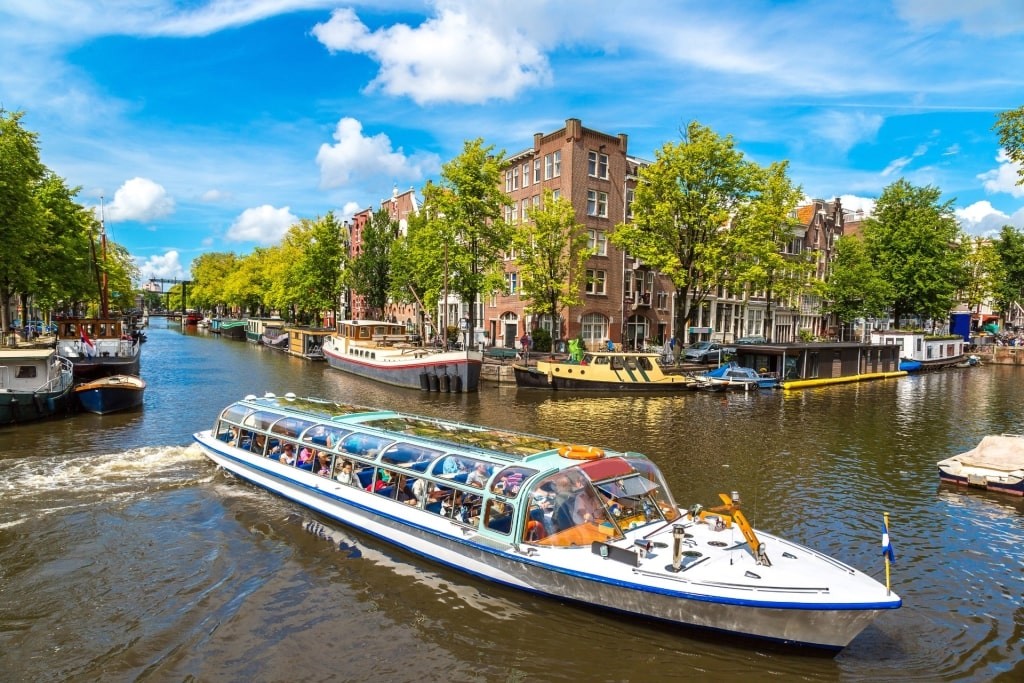
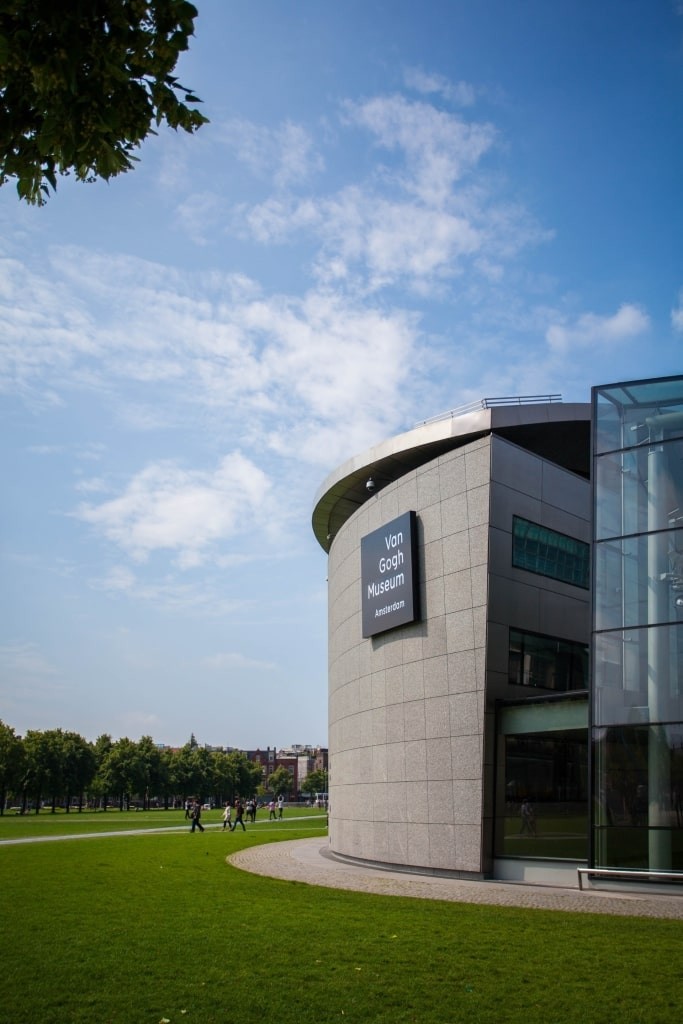
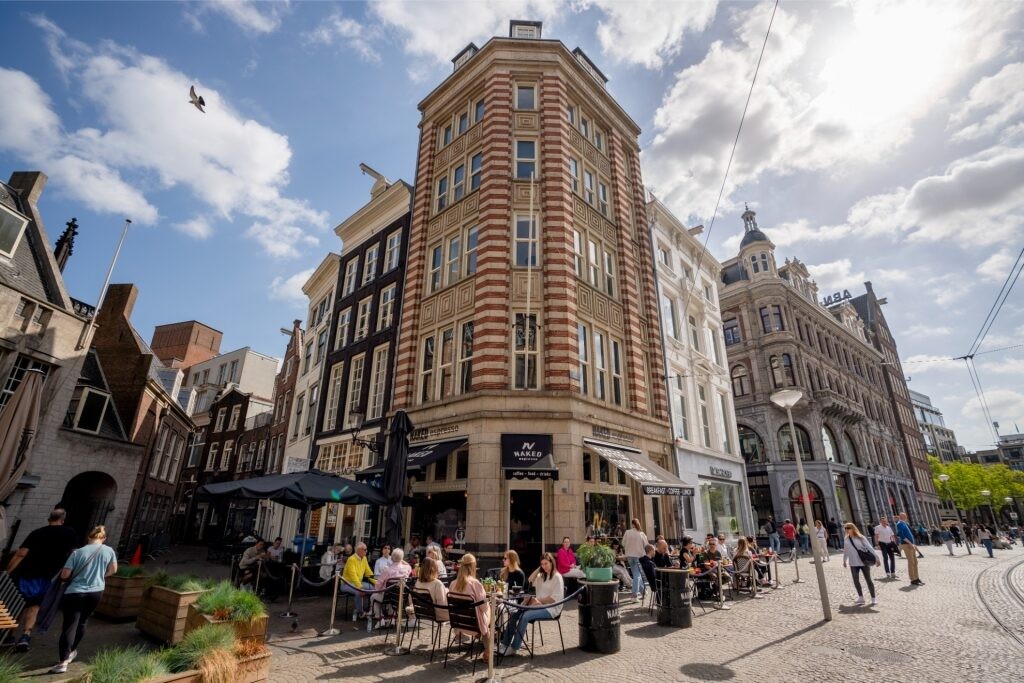
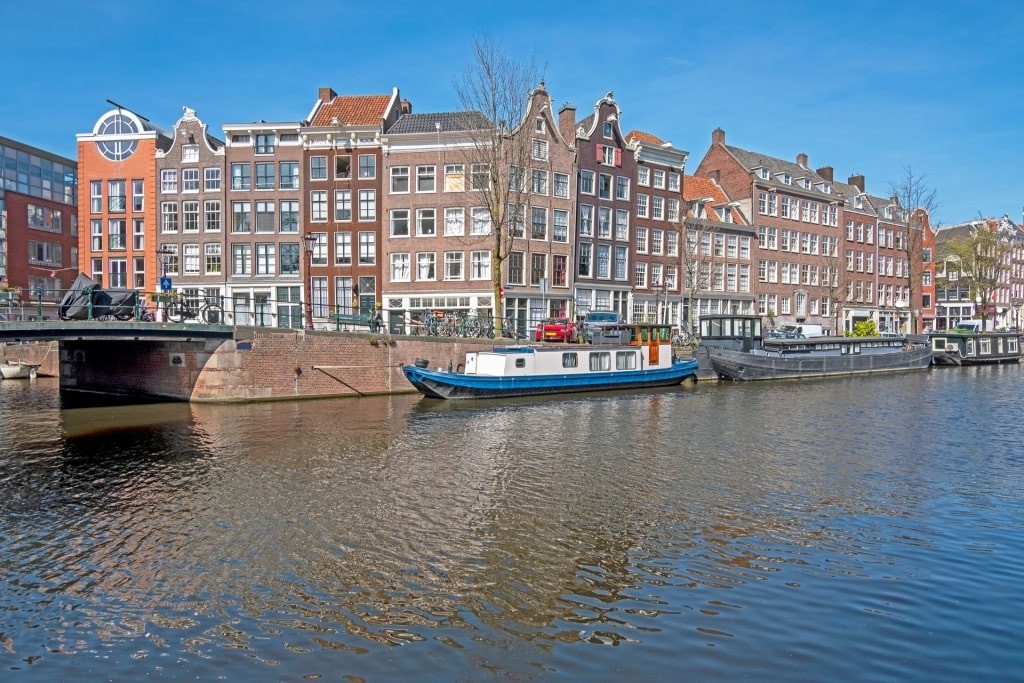
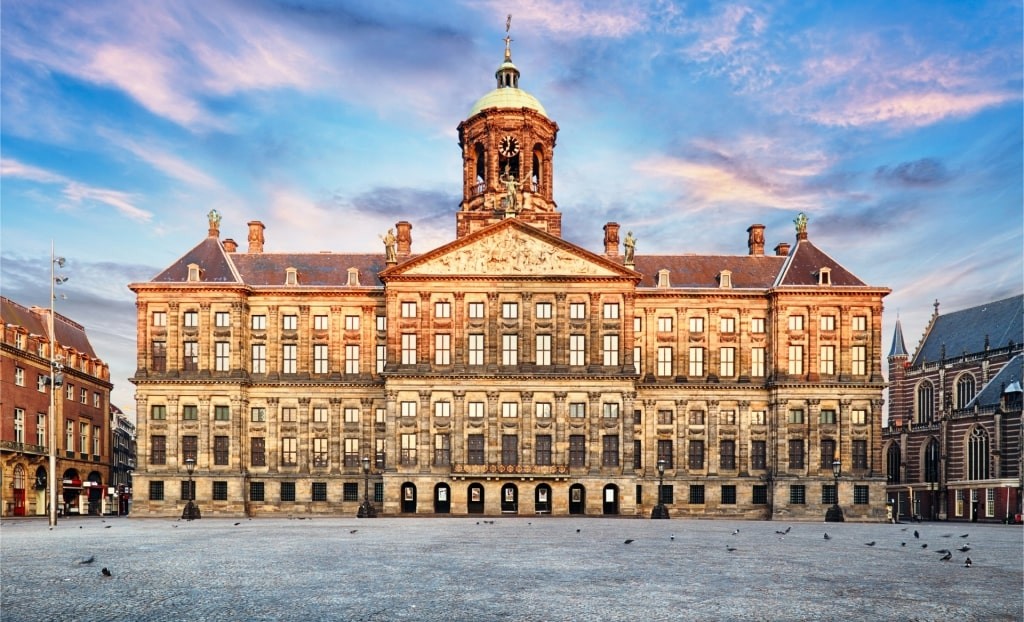
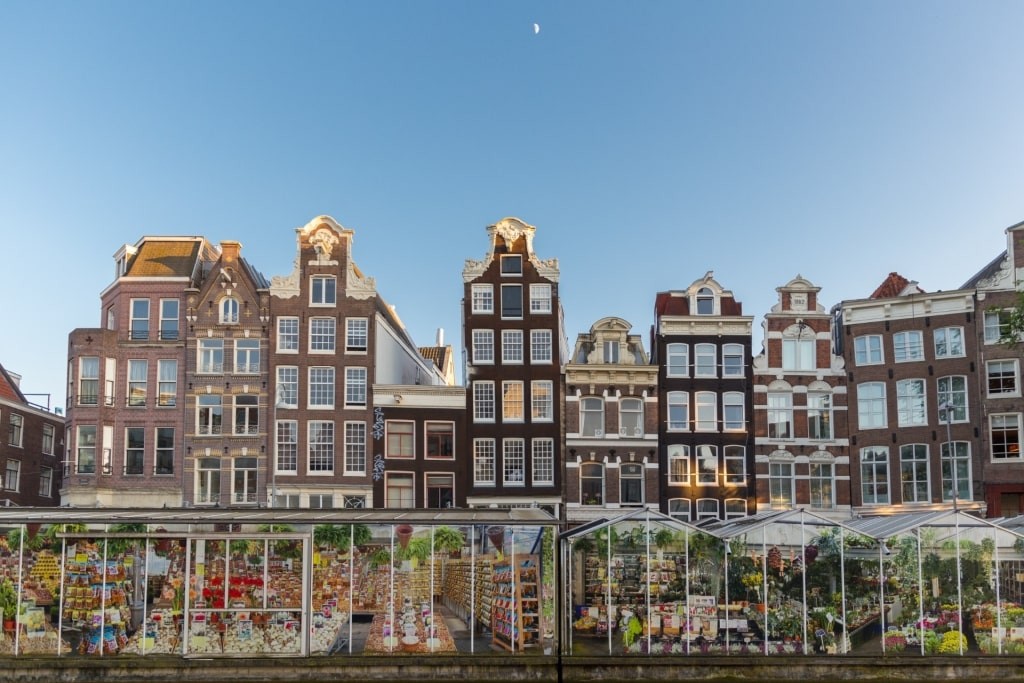
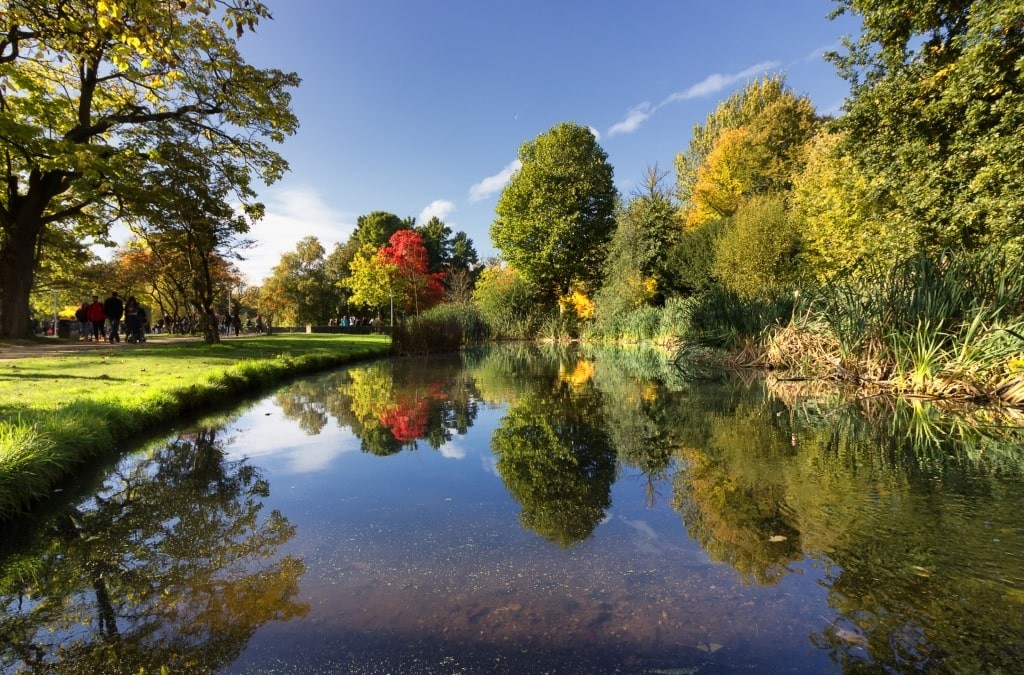
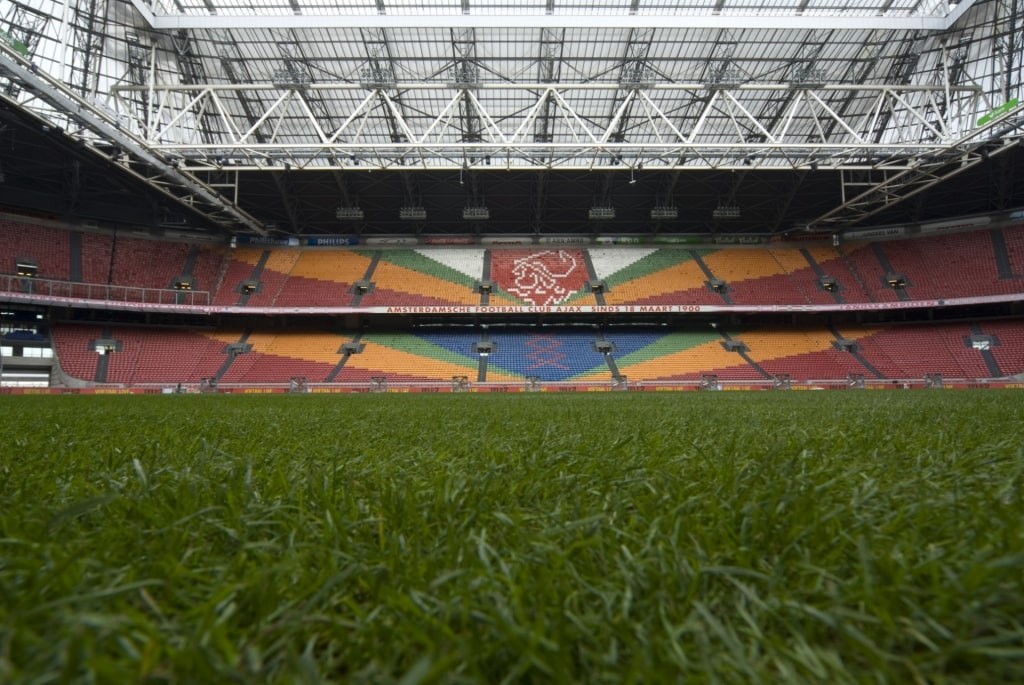


Amsterdam is a city of many facets, each contributing to its unique charm and appeal. From its historic canals and world-class museums to its liberal culture and vibrant culinary scene, Amsterdam offers something for everyone. Whether you’re interested in art, history, culture, or simply soaking up the atmosphere, Amsterdam is a destination that will captivate and inspire.
Do you have more questions about Amsterdam or any other topic? Don’t hesitate to ask on WHAT.EDU.VN! We provide a free platform where you can ask any question and receive quick, accurate answers from knowledgeable individuals. Our goal is to make information accessible and easy to understand for everyone. Visit WHAT.EDU.VN today and ask away!
Contact us:
Address: 888 Question City Plaza, Seattle, WA 98101, United States
Whatsapp: +1 (206) 555-7890
Website: what.edu.vn
